New Zealand ’s first national demonstration event
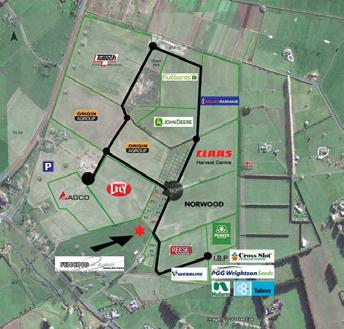
Ag in Action site map

A reminder to all our valued customers, farmers, contractors and dealers alike that you are invited to join us at Ag in Action on 10th & 11th February 2011 - and that this is a national event, not just a North Island one.
It is being held off SH26 between Hamilton and Morrinsville and will be well signposted. This event represents an opportunity, unprecedented in New Zealand, to see all the main competitive brands working. A great chance for you to evaluate and make the right choice! Representatives from Europe will be joining us at Ag in Action. We plan two demonstrations each day starting at 10am and 2pm, using professional operators.
We expect to be demonstrating:
- Krone disc mower
- Krone disc mower conditioner – front/rear combination
- Krone tedder
- Krone twin rotor rake 6.5m
- Krone twin rotor rake 9.0m
- Krone Comprima round baler
- Krone Comprima round baler/wrapper combination
- Krone medium square baler
- Krone loader wagon
- Einbock Grass Star air seeder
- Einbock Pneumaticstar air seeder
- Monosem - NG Plus 4 precision planter, NX precision planter
- Monosem - NG Plus 4 precision planter, NX precision planter
- Rabe - PKE 3001 3m power harrow
- Bema - Agrar 2.3m sweeper
Season’s Greetings
![]()
It is that time of the year again when the season is playing out and we all wonder how it will end up. Just like our resilient fellow New Zealanders in Christchurch and on the West Coast, we must go forward no matter what.
Determination and belief in our product and service is what keeps us going - and we hope that our product is part of what keeps you going! I would like to take this opportunity to thank you, our customers and suppliers, for your continued loyalty and support. I wish you a pleasant festive season and a prosperous 2011.
- John Tulloch , on behalf of all the team at Tulloch Farm Machines .
Farmer Profile: Duncan and Sandra Blue , Strathmore
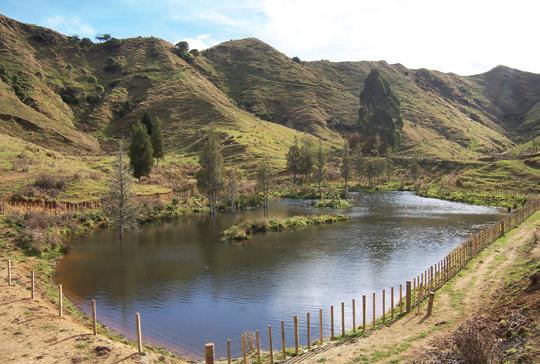
They met when Sandra was working in Fairlie and Duncan was shepherding close by. Both had farming in their veins; Sandra was originally from a sheep and beef farm near Amberley and Duncan is from Strathmore.
In 1982 they married and bought Duncan’s parents’ 80-hectare farm. All was bliss as the returns from sheep and beef were good in those days - until later that year, when Rogernomics kicked in. The finances suddenly looked pretty bleak.
Not about to give up that easily, they decided that Sandra would run the farm while Duncan went shearing. The farm was almost 50% scrub at that stage, so Sandra had her work cut out. Not long after Duncan went shearing, the owner of the business had a fatal car accident. The rest of the gang looked to Duncan to take over. With a financial noose around his and Sandra’s necks there didn’t seem much option and the rest, as they say, is history.
A significant year for the Blues was 1987. The economics were improving and an adjacent block came up for sale that more than doubled the size of the farm. Around this time they began to understand the benefits of fertiliser, and that improved their profitability.
In 1990 another adjacent block of 80 hectares came on the market, and that too was added to the enterprise. The shearing had proved invaluable in supporting the farming operation, but now at nearly 280 hectares, it was of a scale to be able to stand alone.
Sandra had managed the farm well, but now that they had a young family it was too big an ask for her to continue to cope on her own, so Duncan pulled the pin on shearing and stayed home to run the farm with Sandra.
2008 bought some cream to the enterprise. A 120-hectare adjoining block came up for sale. Although, just like the previously acquired blocks, it was covered in scrub, this was rolling to flat country, contrasting with the rest of the farm which is steep hill country.
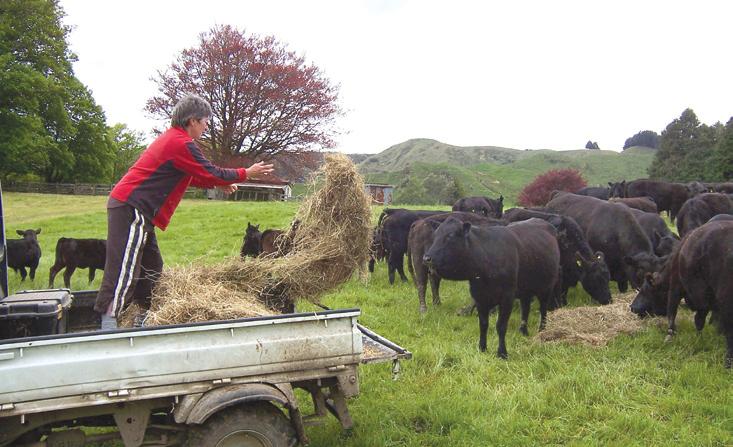
Sandra Blue feeding out a MultiBale
The enterprise is very carefully planned for cost-effective production, accommodating the development of conservation areas. For feed conservation they ran a MF135, a stacker, a sweep and a couple of 4-wheelers but this changed when Duncan met Rusty Hintz, of Hintz Contracting, in Stratford where they both used to play rugby. Rusty now contracts their hay and baleage.
The Blues and Krone
For the Blues, Rusty baled conventionals, some medium-squares and a bit of baleage — pretty normal for most New Zealand hill country farmers. In 2005 he invited Sandra and Duncan to see a new concept baler from Krone, being demonstrated by the Krone dealer in Taranaki, AMT Ltd. It was a Krone BigPack 1270 XC MultiBale which makes small bales within the big bale.
The concept seemed a bit obscure but when they saw the job, they invited Rusty to demo the baler on their airstrip, which is normally put to conventionals.
The day arrived and their nearby neighbours Wal (whom Duncan says has been in the area forever and is a wealth of knowledge and stories) and Nancy Bellamy came to watch. The whole airstrip was baled with a tractor and baler and a second tractor with front-end loader loaded the shed.
This was done in about two and a half hours. The job previously would have taken the whole afternoon with maybe 10 casuals, tractors, baler, sweep and stacker plus the drinks and food to fuel the staff. With the MultiBales easily managed by Sandra, it was a done deal. The Blues categorically informed Rusty that he was never to bring a conventional baler anywhere near their farm again.
Wal Bellamy invited the team to bale up some hay for him later that afternoon. In a recent interview Wal reckoned there’ve been three significant technology advancements for hill country farming: scanning, spraying and now this method of hay production/storage.
Duncan says the stacker and sweep were moved to an old disused shed and have never been used since. “The new system is more cost-efficient and involves no labour from us.”(Wal Bellamy’s sweep and stacker are also parked up. They’ve never been used either since Rusty bought the Krone MultiBale.)
Sandra comments of the MultiBale system with a smile: “It’s just easy peezy; we will never go back to the old system.”
Dealer Profile: Piako Tractors Morrinsville
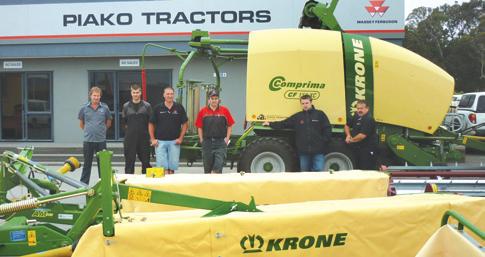
Piako Tractors Morrinsville is part of the Piako Group that includes Piako Tractors Morrinsville, Rotorua, Paeroa, and Piako Mitsubishi Morrinsville and Te Aroha.
Darrell and Catherine Russell started the business in the early 1990s when they purchased Piako Motors in Morrinsville and Te Aroha, which comprised of the Mitsubishi franchise, parts and workshop. A Mobil service station was attached to the Morrinsville shop.
In the middle of that decade an opportunity arose to enter the tractor and farm machinery business with a major tractor franchise in Morrinsville. This grew very quickly and Piako Tractors was soon recognised as a major player in the industry.
2002 presented another opportunity to expand, this time into the Rotorua region. The outcome was a 50/50 joint venture company, Piako Tractors Rotorua, 50% owned by Piako Group and 50% by Ian Pilcher, who manages the dealership. Then in mid-2008 Piako Group acquired the AGCO Franchise in Paeroa. It opened a new dealership there, operating under the banner of the Morrinsville business.
The Piako Group staff embodies a wealth of knowledge and experience. Service manager Dave Lamb has years of experience in both New Zealand and Australia, and can turn his hand to fixing anything. He is backed up by a very experienced and qualified service team, both in the workshop and out in the field in the company’s many mobile service vehicles.
Parts Manger Glen Autridge has been with Piako for several years now and his knowledge of the agricultural parts business is legendary. No matter what parts are required, Glen will find them.
Piako Group’s main tractor brands are those in the AGCO stable - Massey Ferguson and Fendt, plus a full range of farming and contracting implements. Tullochs and Krone are a major part of this business.
Running a business in rural areas means support, support, and more support, says Darrell Russell.
“We do an exhaustive check-list of manufacturers’ and distributors’ support before we represent their products.”
Staff Profile: Jim Grove, Service Technician
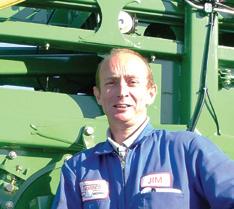
He came to New Zealand with his parents in 1973 and completed an automotive apprenticeship between 1977 and 1981. Except for a period of two years as a supervisor at Pilkington Glass, Jim has been in the automotive business ever since.
In 1983 he moved to the Wairarapa and ran his own business, J & R Automotive Services Ltd, for six years with his wife Karen.
Jim and Karen have three sons and a daughter, and six grandchildren. Jim is a very keen fisherman. He has also indulged in a few bungee jumps, as well as jumping out of airplanes - which might explain why he is a fan of Henry Ford’s products!
Contractor Profile: Kaiser
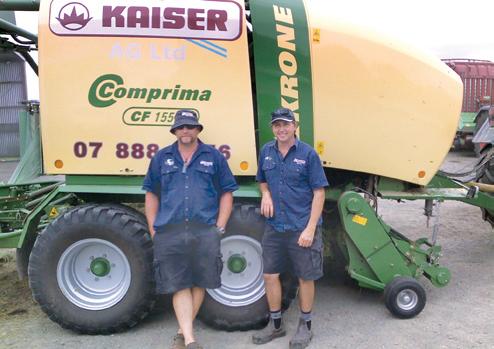
David Fitzi (right) with manager Ross Collins
Located between Morrinsville and Matamata, this company has a unique business mix consisting of Kaiser Ag Contracting and Kaiser (NZ) Ltd, industrial tank manufacturers.
The businesses are owned and operated by David and Clio Fitzi who have three children Martin, Thomas and Anilise.
It all started in 1946 when Otto Fitzi, David’s father, came to New Zealand from Switzerland as a builder after feedback from his brother who was already living here. “Bring a big hammer and you will get work,” his brother had told him.
Otto had farming in his blood, however, and this was passed on to David. Otto was aware of the need for stock effluent disposal and began to build a relationship with Dietmar Kaiser from Liechtenstein whose company manufactures effluent disposal systems.
After completing his schooling, David decided to train as a butcher, which he did in Te Aroha in 1980. He then travelled to Europe working his trade in Germany, Switzerland and Italy. From there he came back home and met Clio. He began working with his father manufacturing effluent tankers at that stage. In 1995 he married Clio who also opted to buy into the fledgling business. In 1993 the company started manufacturing truck tankers.
By 1999 David and Clio, now on their own, set the business in a new direction. Ross Collins, also a qualified butcher, joined the business and they leased a truck - the beginning of a big learning curve.
One day in 2002 David went to the local dairy company on a job. It was a very embarrassing day - he spent more time repairing his truck than he did getting on with the job he was there to do. So he decided the only way to be successful was to have new, good quality equipment that was reliable.
This meant designing and building tanks and spreading equipment himself, and he built his first truck unit. As the business began to grow David focused on the building of the industrial tank wagons and Ross took control of the agricultural contracting.
Applying the philosophy of new and reliable to the Ag division, they purchased a new JD 6910 and a Strautmann loader wagon in 2003. In 2004 David bought a new Scania truck and the business really began to take off.
The lesson at the dairy company taught David that not only was it essential to have quality reliable equipment, but his tankers should all be New Zealand compliant. To this end, all design work was around being ERMA-compliant and certified with a registered TAN number. This extra compliance adds a considerable sum to the final cost, but the benefits and peace of mind, reliability and safety for the operators and to the environment make it worth the cost.
In 2007 they added Kotte Garant slurry tankers from Germany which has proved a very valuable part of the operation. Chosen for its quality and performance, the spreader system on these wagons lays the effluent directly on the ground while maintaining a high work rate.
In 2008 David and Clio purchased part of the family farm on which they now live. They run deer and some grazers, and any surplus grass is sold. To date Kaiser (NZ) Ltd. has sold nearly 100 tankers. David attributes this success to good quality equipment with good back up from himself and his suppliers. Doing the job properly and word of mouth is the main form of advertising for both divisions.
“If you pay too much, you might lose a bit but if you pay too little, you could lose the lot,” is David’s philosophy.
Another key to their success are the 10 dedicated permanent staff. A good working relationship with respect for each other and the equipment, as well as pride in their work are reflected in the congenial atmosphere at the yard and the good condition of the gear. It all ultimately leads to customer satisfaction.
Being seasonal, the two businesses complement each other. Their peak demand times don’t clash, allowing the staff and tractors to be employed year round. The business ticks over very smoothly now with David controlling the tanker manufacturing and Ross looking after the contracting work and effluent disposal. Clio runs the books for the manufacturing and farming operations and Ross’s wife Amanda does that for the Ag and contracting divisions.
Back in 2003 Kaiser bought a used rake from Mike Kitching of Piako Motors, Morrinsville, and from there a strong relationship has developed through “… excellent service and quality product,” says David.
A year later they bought, through Piako Tractors, a Krone EC 320 mower and Swadro 761 rake. In each successive year they bought a Krone EC 320CV mower conditioner (2005), a Swadro 800 rake (2006), a KW 5.52 tedder (2007), an EC 320 mower and a second hand Krone CP1500V combination baler/wrapper (2008). The latest acquisitions this year have been a Swadro 900 rake and a Comprima CF 155XC combination baler/wrapper.

.png)